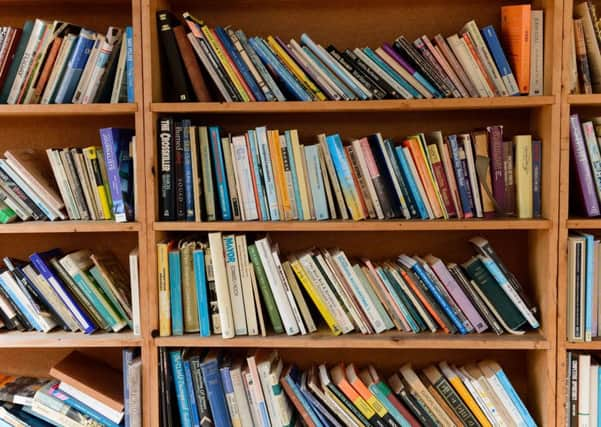Jayne Dowle: The sad puzzle of how family games and books died out


Looking around my living room, I see a pile of board games, several packs of cards and a box of dominoes. There are also three bookshelves arranged in order of subject matter – reference, novels and poetry – and another shelf in the hall packed with local history.
Then there’s the gardening books and interiors books and the cook books and the dictionaries and children’s fiction.
Advertisement
Hide AdAdvertisement
Hide AdYet, according to a new survey by Aviva insurance, our house is an endangered species.
More than a third of UK households do not own a single board game, never mind cards or dominoes. Furthermore, one in 10 families does not possess a single book. I’m wondering whether I should open the front door and charge a small admission fee so people can come in off the street and marvel at our quaint, old-fashioned ways.
When we were renovating our house last summer, an elderly chap did stop by to say hello. With tears in his eyes, he told us that, as a boy during the Second World War, he spent many an evening in our kitchen playing board games with his friend who lived here. They would listen to the bombs falling on Sheffield a few miles away, but clung to the fact that there would always be hope in the world if Scrabble and Monopoly remained.
At Christmas, Lizzie, who is 11, asked for the family edition of Trivial Pursuits. It brought tears to my own eyes to see us all – including my parents – sitting around the table after dinner battling it out to test our general knowledge. Memories are made of this, not sitting with heads bowed in silent reverence towards our iPhones.
Advertisement
Hide AdAdvertisement
Hide AdModern people might scoff at board games, but not only do they bring people together, they teach valuable life skills. Knowledge for a start. And also the art of being a good loser and a fair winner.
If they are by their very nature joint activities, reading is the opposite. Knowledge, again,is an obvious bonus. However, time reading, or even just looking through a book, teaches us about self-reliance, exercises the imagination and aids concentration at any time of life.
And if there are no books at home, how is a child supposed to deal with these strange objects at school? We hear so much about school-home contracts and so on. Such contracts really should work both ways.
I know I sound reactionary, but any right-thinking parent has a moral duty to present books to their children from the earliest age and keep presenting them.
Advertisement
Hide AdAdvertisement
Hide AdWhen I help my teenage son with his homework, I try to gather around any relevant tomes which might help us with reference and context. It’s all too easy to turn straight to St Google to find the answer to anything these days. I admit I’m the biggest culprit.
I can’t remember, for instance, the last time I picked up my very dog-eared student thesaurus when I’m writing and stuck for a word. It’s all too easy to open my browser, type in the head-scratching puzzler and “synonym” and wait for a list of alternatives to present itself immediately to me.
I guess it’s all about balance, really. I can’t read a novel on a machine for example. It’s a pleasure to be savoured, not scanned as though I am reading my online gas bill.
The point of this new report is black and white, however. It wishes to show that traditional pursuits such as reading and playing board games are in rapid decline, as the relentless march of technology takes over. To this end, it also found that the average UK home now has 10.9 internet-enabled devices, taking into account smartphones, tablets, televisions, security cameras and remotely-operated thermostats.
Advertisement
Hide AdAdvertisement
Hide AdAnd here’s the rub. Yes, I’d say that we are guilty of most of those too. There are four of us – two adults, a pre-teen and a full-blown teenager – in our house. Between us, we have four smartphones, three laptops, two tablets and four televisions. We also have a wi-fi enabled thermostat for the central heating, but quite frankly I haven’t got enough spare RAM in my brain to remember how to use it.
Nearby, on the shelf with the board games, is also a roll of plain white sticky labels and a pen. This represents the most popular game of all for us, and it cost no more than £1. It’s for the one where the name of an animal, celebrity or similar is stuck on your head and you have to guess who you are.
We have devised our own version, which involves trying to guess the name of colourful neighbours and local characters. The children absolutely love it, and believe me, it’s hilarious. I think it’s called making your own fun. Whether we’re reading, playing board games or teaching our offspring the rudiments of poker, we should all try to do it more often.